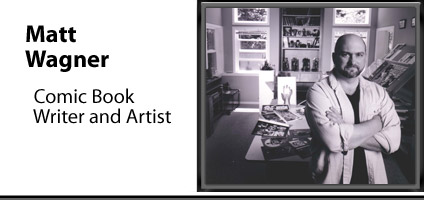
I ate a chocolate whopper today. A cookie that was so chocolatey that
in the molecular space where there’s usually air
or maybe some kind of eerie vacuum
with a faint ringing tone
there was no air or vacuum. There was
more chocolate.
At the time I thought I’d earned it.
I thought the math of my last few days
the good things I’d done, the bad things, the easy moments I’d had, the challenges
had all added up to
it being OK
for me to consume
a chocolate whopper.
At the time.
That’s what I thought.
Blog
-
I’ll admit it
-
Am I the only one
who’s been worried about whether, in this post-9/11 world, what with the war, and the economy, and health care, and the general state of things, the cable news channels still had it in them to babble on and on (and on) about painful but not really very important OJ-type celebrity uglinesses?
You can imagine what a relief the last few days have been…. -
Sweet Caroline — Jonathan Coulton cover
Caught the Coulton show in SF Friday night with xian and so-called Bill. Excellent fun. The highlight for me was a swank encore cover of Sweet Caroline. Here’s some footage of said cover from the LA show, which I believe was the night afore….
-
My latest million-dollar-idea
A mash-up of the brilliant Parliament Funkadelic with the soaring solo work of Art Garfunkel:
Parliament Garfunkadelic. -
The greatest generation strikes back
My 7-year-old just offered this interesting observation (which I reproduce here with apologies to my 81-year-old readers): “Death is OK. It’s OK if you die of old age. Dying at 80 just means that God thinks you’ve had enough time.” To which my 9-year-old added, “A soldier dying in war isn’t OK.”
The proximity of these two thoughts led me to the kind of rare insight that comes only once every few weeks, to whit: Why aren’t we sending our 80- and 90-year-olds to war and leaving our 20-year-old kids home to play with their video game contraptions and text messaging?
I know, I know, this is kinda politically incorrect, and I apologize for that. And I certainly mean no disrespect to 90- and 100-year-olds. But seriously, I’m picturing a wave of 30,000 pissed off 110-year-old soldiers, tossing grenades, pressing lethal buttons, shouting “take that you ratzis!” I would run away from a wave like that. Wouldn’t you run away from a wave like that? I think I would poop myself. And then I would run away. -
To Raleigh’s and back
I spend so much time with my own tribe nowadays. You just get used to it, being around your own tribe.
So it was a good, healthy shock to the system to go inside Raleigh’s today in Berkeley and find this other tribe. There were lots of Cal people there in yellow. Lots of folks from Tennessee in yellow too — a slightly different yellow, I’m guessing. All of them ready for the big Cal, Tennessee game.
The men were thicker than me. Most of them a few inches taller than me, and I’m just shy of six foot. They were clean-shaved and younger than me. Much younger, most of them. But somehow they looked a little older than me. The women were suspiciously tan for Northern Californian and Tennessean peeps. Steely eyed.
They really wanted Cal to win, these people. Or Tennessee. When one group in yellow started singing some sort of enthusiastic song, the other group in yellow began to boo. Nobody got punched and I was excited about that.
It’s not that I don’t like sports. If you know me, you know I love my Golden State Warriors. But this was a different sort of sport-oriented good-times. Something a bit more profound. More than anything, it reminded me of a Grateful Dead show I went to back in the early ’90s. It had that same feeling of a landless nation that periodically swarmed together, only to break apart, only to swarm back together.
I enjoyed the novelty of it all, and they appeared to tolerate my lack of school colors. I wished I had a phrase dictionary, so I could talk with them in their own language. “What time is the game?” I would have asked. “I hope the team you are rooting for is successful!” -
My Several-Word Review of Super Bad
I tried to find the one word. I considered: “Wow.” “Exhausting.” “Epic.” Maybe “lovely” would have done the trick. Because it was a lovely movie, only slightly marred by the fact that the 20-something lady in the seat immediately to my right kept shouting “yes!” at unexpected moments. “Yes!” she shouted, wearing an inappropriately fancy red dress. Very disturbing.
The third in a trio, this one — American Graffiti, Dazed and Confused, and now Super Bad. Three slices of poetry. A story told overnight about childhood’s super goodbye.
Afterthought: D&C and SB were primarily from the guy’s perspective. Are we due for the 17-year-old girl’s take on the last day of school? Or has that been done and it just didn’t hit my radar? -
An Interview with Matt Wagner, Part Two

Photo credit: Greg Preston.
Welcome to the second half of this two-part interview with Matt Wagner, award-winning comic book writer and illustrator, and creator of Mage and Grendel. If you haven’t already read the first part of this interview, be sure to check it out to hear Wagner talk about the birth of Mage, and why comic book creations often look like their creators. You can find it here.
Matt Wagner on the Web: mattwagnercomics.com
CV: I recently read your Batman run — the “Dark Moon Rising” books. Could you describe where the idea for those books came from?
MW: They’re actually based on two of my favorite Golden Age Batman stories from the late ’30s and early ’40s. They’re both pre-Robin stories — before Robin shows up. “The Mad Monk” is in Detective Comics #31 and #32. #31 you’ll recognize — it has a very famous cover; it’s a huge image of Batman looming up over a small castle in the foreground. There’s a moon behind him, and he has absolutely ginormous bat ears. In fact, when you look it up, you’ll go, “Oh, of course — that cover.” The other one, “Hugo Strange and the Monster Men,” was in Batman #1.
Part of the fun of playing with somebody else’s toys is the challenge of trying to tell a story where some of the playing pieces are already in place on the board. In the world of Grendel, in the world of Mage, I’m the absolute god. Whatever I say happens, happens, and there’s never any question. With Batman there are many other aspects to consider. [Also,] any work I’ve done for DC, I always like to work early in a character’s career because I hate the giant, extended, huge continuity crap you have to deal with in their world. And I’ve just always liked primary-motivation stories.
So I decided there was a missing link in the early Batman tales, where we needed to see his transition from Batman Year One — the Frank Miller/David Mazzucchelli classic storyline where he’s fighting just thugs and mobsters — to his more established litany of costumed crazies that eventually becomes his absolute normalcy, you want to call it that [laughter]. And so I decided to take these two early stories and revamp them into a modern setting. I wanted to dig deep into the actual origins of this character.
Those early primal Batman tales are neat because the conventions that have since become established as being comic-booky were fresh and new and were based more on a pulp tradition than what we think of as comic cooks. And they were just so unfettered and raw. So I took those and tried to squeeze them into DC’s continuity and make them work.
CV: What’s your creative process when you’re tackling a project like this — what sort of thought bubble might we see over your head while you’re at your desk? -
Today’s lunch-time conversation
“Did you find everything you’re looking for?” asked the guy at the grocery store checkout.
“Yes. Spiritual wholeness. Physical well-being. Companionship. Chick peas.”
“Do you want paper or plastic?”
“Paper?”
Handing over a medium-sized paper bag and my change he said, “Enjoy your happiness.” -
An Interview with Matt Wagner, Part One

Image (c) copyright Matt Wagner.
Matt Wagner is a comic book writer and illustrator, best known for his original comics Mage and Grendel (winner of three Eisner awards) and a five-year run on Sandman Mystery Theater, as well as for recent stints on Batman and on Trinity, a three-issue miniseries featuring Superman, Batman, and Wonder Woman.
This is the first half of a two-part interview. Be sure to also check out the second half, in which Wagner talks about how Mage is like a Zen journey, and what makes for good comic-book storytelling.
Matt Wagner on the Web: mattwagnercomics.com
Cecil Vortex: Were you a storyteller as a young boy?
Matt Wagner: I was. My father, and this dates him quite a bit, used to say I was vaccinated with a Victrola needle because I was very talkative…. My parents like to tell a tale of when I was quite young. I must have been five or something like that. We had literally — I kid you not — a door-to-door Bible salesman come to the door one day selling these lavishly illustrated Bibles. We were going through it and I was pointing out all the illustrations and saying, “Oh, look this is Noah, this is Jonah, Jesus” etc., etc., and we got to a picture of Adam and Eve in their loincloths in the Garden of Eden and I turned to my dad, apparently, and said, “Dad, Tarzan!” [laughter] So I think I was doomed for this profession from the very beginning.
My mother was an English teacher before she became a full-time mom, and a huge proponent of reading, so she made sure I was an early and vigorous reader. Coupled with that was the fact that I was an only child. I grew up in the middle of Pennsylvania in Amish country — we lived out away from most other houses…. I drew to entertain myself because there wasn’t much video entertainment in those days. I think we had probably three or four TV stations initially. And so I was a vigorous reader and I drew. And comic books were both writing and drawing all rolled into one and just became the magic quotient for me.
CV: So you were headed for comics from the start?